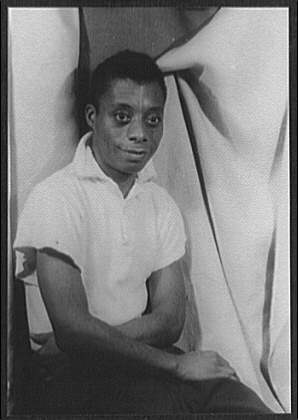This year, we will be celebrating 100 years of James Baldwin. Novelist, essayist, and social critic James Baldwin was born on August 2, 1924, in Harlem. Baldwin was heavily influenced by his Harlem middle school French teacher, famed poet Countee Cullen. Cullen was a leader of the Harlem Renaissance, a flourishing of artistic expression that emerged from the community of Harlem in New York City in the 1920s. Countee Cullen devoted himself to the education of children in the last period of his life and concentrated on teaching and writing children’s books.
At 14, James Baldwin was in training to become a Pentecostal preacher, but by 17, he had become disillusioned with Christianity. Troubled by the racism he encountered in America, he moved to France when he was 24, where he wrote his first book, the semi-autobiographical Go Tell It on the Mountain. Later works include Giovanni’s Room, known for its frank depiction of homosexuality, and a collection of essays, The Fire Next Time.
While James Baldwin’s literary focus is largely for and about adults, in 1976 he wrote Little Man, Little Man: A Story of Childhood. Re-released by Duke University Press in 2018, it is a fictional work based on the childhood adventures of Baldwin’s nephew Tejan (“TJ”) and niece Aisha in Harlem, New York in the 1970s. The book includes bold illustrations by French artist Yoran Cazac and unique subject matter. A panel including Aisha Karefa-Smart, Nicholas Boggs, and Jason Reynolds explored this only children’s book ever written by James Baldwin. See the panel discussion here and read more about the text in this post. There is also a Teacher Resource Guide for this unique text by Baldwin.
Eventually known as a key voice in the Civil Rights Movement, Baldwin died in France in 1987. Read more about Baldwin’s life and hear his voice in this biography from the Library of Congress.
Preview and share with students all or parts of Baldwin’s 1963 essay “A Talk to Teachers.” Ask students to identify Baldwin’s main contentions about race relations in America and think critically about connections they see to other texts (such as poems, books, or films) and to contemporary social issues. Then invite students to write a letter to Baldwin responding to his ideas and how they see them resonating with the present.
A teacher educator revisits James Baldwin’s notable 1963 speech and advances the Archaeology of Self™, a self-awareness model for equity and action in this article. As the author of the article, Dr. Yolanda Sealey-Ruiz says, “What an honor to revisit James Baldwin’s 1963 classic ‘A Talk to Teachers’ through a modern-day, racially literate lens.”
Dig deeper into Baldwin’s “A Region in My Mind” with these discussion questions from ReadWriteThink.org.
“The act of watching Coates be a pupil of Baldwin’s writing and a careful examiner of his own body of work became a way for students to observe the ways writing can be cyclical, cathartic, and catalytic.” Read more in “Sourcing the Imagination: Ta-Nehisi Coates’s Work as a Praxis of Decolonization.”
In this blog post, Millie Davis shares her reactions to Barry Jenkins’ film rendition of James Baldwin’s If Beale Street Could Talk and how it led her to think about the many African American stories that are part of school curricula, how they’re often challenged and censored from it, and how they shouldn’t be.
What is your favorite piece by James Baldwin?
Curious about the NCTE and Library of Congress connection? Through a grant announced recently by NCTE Executive Director Emily Kirkpatrick, NCTE is engaged in ongoing work with the Library of Congress, and “will connect the ELA community with the Library of Congress to expand the use of primary sources in teaching.” Stay tuned for more throughout the year!
It is the policy of NCTE in all publications, including the Literacy & NCTE blog, to provide a forum for the open discussion of ideas concerning the content and the teaching of English and the language arts. Publicity accorded to any particular point of view does not imply endorsement by the Executive Committee, the Board of Directors, the staff, or the membership at large, except in announcements of policy, where such endorsement is clearly specified.

